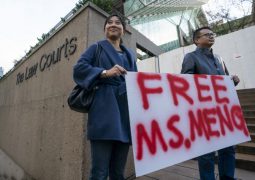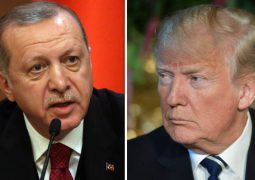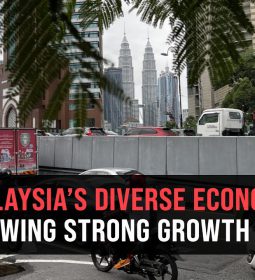North Korean nuclear programme to replace South China Sea as key issue at Asia Security Summit

The three-day forum, known as the Shangri-La Dialogue, is a platform for defence officials from some 50 Asia-Pacific states, including China, Japan, South Korea, the Asean countries and Britain and Russia. It has in the past been the stage for airing South China Sea territorial disputes, but these have quieted down in recent months as Beijing has improved its relations with its Association of Southeast Asian Nations neighbours.
However, uncertainties about North Korea have increased in recent months. It has fired 12 missiles during nine tests so far this year, with three being launched within the past three weeks, and is likely to be a key topic at the summit in Singapore.
“North Korea’s nuclear proliferation presents a serious threat to regional security and stability and is likely to be a very important subject for this year’s Shangri-La Dialogue,” Dr Rajeev Ranjan Chaturvedy, a research associate at the Institute of South Asian Studies at the National University of Singapore, said.
“We are witnessing violence, extremism and the proliferation of transnational threats. The countries in this region are already under tremendous pressure,” Chaturvedy said.
Beijing-based naval expert Li Jie agreed that compared with the South China Sea, the North Korean nuclear question was “more urgent and dangerous”. But he said Beijing would try to convince its summit counterparts that its ability to constrain Pyongyang’s nuclear programme was limited.
“China can only be a mediator, to coordinate between Pyongyang and Washington, because the US is the main target that [North Korean leader] Kim Jong-un hopes to deal with,” Li said.
Don’t let Pyongyang exploit mistrust between China and US, ex-US official says
Professor Ren Xiao, an international relations specialist at Fudan University in Shanghai, also agreed that Pyongyang’s nuclear programme would top the agenda among the summit delegates.
“Kim Jong-un has conducted three missile tests since Moon Jae-in was elected as the new president of South Korea, with the first one taking place just hours before Beijing began hosting the Silk Road Summit on May 14,” Ren said.
“Pyongyang’s recent provocative moves will only push China and the US to strengthen cooperation on the nuclear threat.”
However, China is unhappy about South Korea deploying the US Terminal High-Altitude Area Defence (THAAD) anti-missile system, which Seoul says it needs to counter Pyongyang’s missile threat. Beijing considers the THAAD system a threat on its doorstep, because its advanced X-band radar is able to extend its coverage deep into China and across the South and East China seas.
What is the Shangri-La Dialogue and why is it so important?
Ren doubted that the upcoming summit could resolve the North Korean problem in any meaningful way, but said it would provide a good opportunity for discussions on its sidelines.
Another departure from the past for this year’s forum is Beijing’s decision to send a group of defence researchers instead of military personnel. A delegation from the PLA Academy of Military Science would attend, a spokesperson for the Defence Ministry said.
For the past two years, Beijing has sent Admiral Sun Jianguo, deputy chief of the Central Military Commission’s Joint Staff Department, to lead the Chinese delegation. Sun is part of the top PLA brass, responsible for intelligence and military diplomacy.
“This is definitely a downgrade, because the Academy of Miliary Science is just a research institute,” said Huang Jing, a professor and director of the Centre on Asia and Globalisation at the Lee Kuan Yew School of Public Policy at the National University of Singapore.
By contrast, the US will send Secretary of Defence James Mattis to Singapore. Mattis is scheduled to give a major speech on Saturday, said the London-based International Institute for Strategic Studies, which has been co-hosting the forum with the Singaporean government since 2002.
Australian Prime Minister Malcolm Turnbull will give a keynote speech this year, according to the official website of the Shangri-La Dialogue.
- Previous Trump pulls US out of climate pact: is China set to lead?
- Next Chinese family forced to move six times because of huge pet pig’s snoring
















